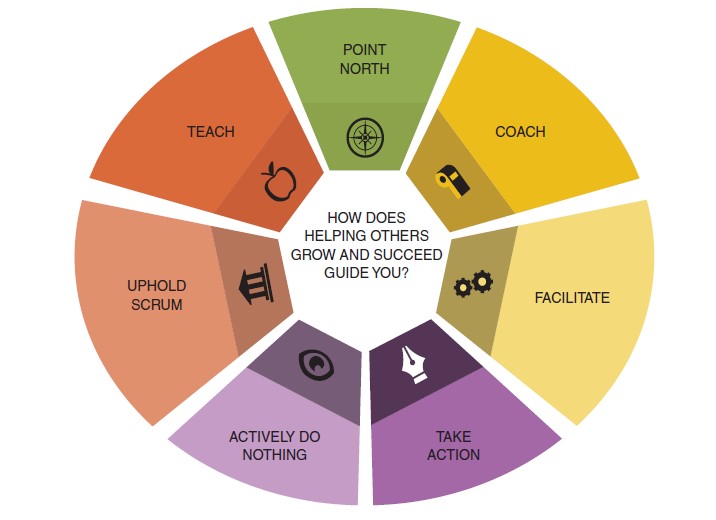7 approaches effective Scrum Masters adopt
1️⃣ Uphold Scrum 🏛
guiding the Scrum Team back to the “why” behind the framework, reinforcing the benefits that being true to Scrum’s principles provides.
2️⃣ Teach 👩🏫
Helping team members improve their understanding and apply that understanding to deliver value more effectively.
3️⃣ Point North 🗺
Fostering an empirical culture of inspection and adaptation with the intention to make better decisions by delivering value, gathering feedback, and changing course based on that feedback.
4️⃣ Coach 📊
A Scrum Master embodies the belief that the person or team has the capability of finding their own answers, and she/he helps them find those answers. It’s usually done by asking questions.
5️⃣ Facilitate ⌛
Facilitating Scrum events, additional working sessions, or even the flow of impromptu collaborations throughout the Sprint. Effective facilitation requires awareness (reading the room), constructive conflict, and maintaining a focus on shared goals and outcomes.
6️⃣ Take action 🛠
A Scrum Master is a protector of the team. If she/he steps in too much or too frequently, it will damage the Scrum Team’s ability to self-organize—but where the team’s safety or integrity is threatened, the Scrum Master may have no alternative.
7️⃣ Actively do nothing 🔍
Doing something for individuals when they could do it for themselves disempowers them.
The “active” part means you continue to actively observe while the team learns and explores. Then, based on what happens, you can continue this approach or choose something else.
